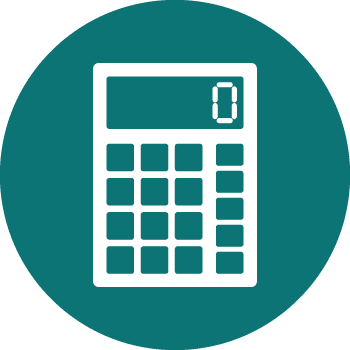Cash-Out Refinance Loan
Cash-Out Refinance: What Does It Mean?
When is a cash-out refinance loan recommended? While not everyone will need to refinance their loan, it may come in handy when you’re in a pinch, or if you need to make improvements to your house. Refinancing any type of loan should be a decision that is well-thought-out because you are borrowing the cost of your home, plus extra money.
Cash-out refinance loans are mortgage loans that replace an existing home loan. With this new loan, you’ll owe more than the cost of your home, and the difference is what you can receive in cash to make improvements. This money can also be spent on debt consolidation or other financial needs such as school. However, you don’t want to just take out a refinance loan for any reason because you are borrowing your home mortgage. Not paying back this refinance loan could mean that you lose your home. That’s why you want to be smart about your cash-out refinance and work with reputed lending institutions, credit unions and banks.
What Is Equity?
Equity is the “value of shares issued by a company”. It means you own something that has debt attached to it, but part of the item is paid off. For example, if you own a home and it’s worth $100,000, the equity will be $50,000 if you have only paid off half of your mortgage. If the asset were a car worth $20,000 and you still owe $8,000, then the equity is $12,000 because that much has already been paid off.
When it comes to cash-out refinance loans, you can’t actually borrow 100% of your home’s value. The cash-out amounts are limited to 80%-90% of the total value of the home’s equity. In order to have this type of loan, however, you will have to have a certain percentage of equity in your home. This means you can’t take out a mortgage and then immediately take out a cash-out refinance loan to get more money. You have to have partial ownership to be eligible to do a cash-out refinance loan so lenders will know you are making payments on borrowed money.
What Are the Benefits of Cash-Out Refinance Loans?
Many homeowners apply for cash-out refinance loans because they can get them ahead during periods of life where debts are high or money is needed. Here are some of the benefits of cash-out refinance loans:
- Homeowners can get a much-needed lump sum when they have debts that need to be paid off quickly.
- Pay off credit cards. Most cards come with hefty interest rates that can make it impossible to pay off the total if you can only meet minimum payments. With extra cash-out money, you could pay those cards off.
- You can get a higher credit score. However, that’s only if you use your extra cash to pay off high-interest credit cards and other small loans that may have tons of interest attached to them.
- Some cash-out refinance loans are eligible for mortgage interest deductions. You will have to use the money to build, buy or significantly improve your home to meet these deductions.
Here are some of the cons:
When considering whether or not to invest in a cash-out refinance loan, it is important to consider the pros as well as the cons:
- If you’re using a cash-out refinance loan to pay off a credit card and other debts, you’re using “secured” debt to pay off interest-gaining “unsecured” debt. This is not the best way to pay off debts and shouldn’t become a habit, as that could lead to losing your home and other assets. Make sure to keep up on the refinance home payments so that your assets are secure.
- Extra insurance costs. If you borrow more than 80% of your home’s value, then you will have to pay for mortgage insurance. This adds extra interest each year that’s between 0.55% to 2.25%.
- Because you have extra money, you may use credit cards more. Pay off the existing cards if this is why you did the cash-out refinance loan and don’t get new credit cards.
- Paying closing costs. You have to pay these on the new cash-out refinance loan and they are typically between 2% and 5% of the refinanced loan.
Refinance Calculator: What to Know
You want to calculate the pros and cons when it comes to cash-out refinance loans. How much should you borrow? Do you need a refinance loan or a smaller loan? Is your income steady and are you likely to pay back the extra money that is owed? Is what you want to buy with the extra money worth refinancing your home? For instance, making home improvements or paying off major debts are commonly justifiable reasons to get a cash-out refinance loan. Wanting extra spending money for a holiday isn’t.
Mortgage Calculators
Quickly predict your monthly mortgage payment and interest with this customizable tool!
Mortgage Resources
Leverage the tools you need to find a borrowing solution that fits your particular needs and budget.
Mortgage FAQs
Get answers to the most commonly asked mortgage questions.




